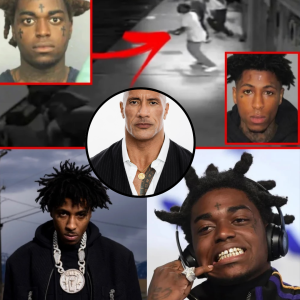Aphasia – the disease that caused Bruce Willis to retire – is considered by the medical community to be a serious disease that makes the sufferer unable to hear, speak, or read.
Actor Bruce Willis’ daughter said on March 30 that he retired from acting due to aphasia, a type of brain dysfunction.
Aphasia is a serious condition that causes a person to lose the ability to communicate, making it difficult to read, speak, or even understand what others are saying. The disorder results from damage to the parts of the brain responsible for language, usually located in the left hemisphere.
The disorder is more common than Parkinson’s disease, cerebral palsy or muscular dystrophy, affecting about two million Americans, according to the National Aphasia Association. About 180,000 people are diagnosed with the condition each year.

People with aphasia have difficulty finding and using words in order. They may communicate in broken sentences or utter meaningless sounds, according to the American Speech-Hearing Association (ASHA). They may also have trouble writing or copying text, unable to reproduce individual letters or words.
People with aphasia take longer to understand or absorb what others say or read. They lose the ability to recognize words by sight or pronounce written words. They often cannot follow a fast conversation or understand complex sentences and concepts.
Aphasia affects each person differently, depending on the extent and location of brain damage. There are two specific forms of the condition.
The first is “fluent” aphasia . In this, the patient can speak, but the conversations often do not make sense, long sentences contain many unnecessary words, combined together in a discordant way. The patient is not aware of this and has difficulty understanding what others say.
The second is “non-fluent” aphasia . Patients understand the speech of those around them, know what they want to say, but have difficulty expressing themselves. Their pronunciation is very awkward and difficult. Patients often speak in short phrases, omitting small words such as “is”, “and”, “the”,…

Bruce Willis attends the premiere of the movie “Glass” in London, England, January 2019. Photo: Reuters
Some experts have a different classification for aphasia, dividing it into three types. Accordingly, people with expressive aphasia have difficulty completing sentences or finding words. They also cannot remember certain words, and have to stop in the middle of sentences for a long time to think.
Patients with receptive aphasia often feel confused when talking to others, unable to follow the conversation.
Global aphasia is a condition in which all four main language modalities: speaking, understanding, reading and writing are severely impaired, making the patient unable to communicate.

Bruce Willis’ family has not said what kind of aphasia he has.
According to ASHA, aphasia is often the result of a traumatic brain injury, infection, brain tumor, or degenerative disease such as dementia. However, the biggest cause of the condition is stroke. According to the National Aphasia Association, 25% to 40% of stroke survivors have aphasia. Older adults are at the highest risk.
Aphasia occurs mainly in patients over 65 years of age, but it can develop at any age. It comes on suddenly, especially after a stroke, but can also develop gradually.
“The patient’s sentences get shorter and shorter. Then, at some point, they have difficulty expressing any words,” explains Shazam Hussain, MD, director of the Cerebrovascular Center at the Cleveland Clinic.
To diagnose this syndrome, doctors test the patient’s ability to talk and follow commands. If there is a brain injury, the patient is prescribed a magnetic resonance imaging or CT scan.

Treatment usually focuses on the patient’s symptoms. For milder forms of aphasia, the approach is rehabilitation, using speech therapy to retrain the brain to recognize words, speak, and write.
For people with dementia, the brain continues to deteriorate. Doctors and medical professionals focus on visual aids to help people communicate normally.
According to the National Aphasia Association, full recovery is unlikely if symptoms persist for more than two or three months after a stroke. However, experts say some people improve years or even decades later.






